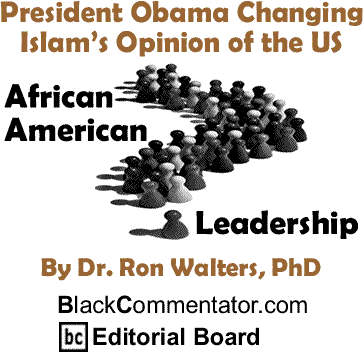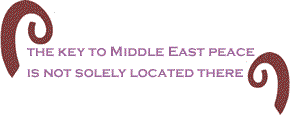
|
|||||||||||||||||||||||

|
|

Custom Search
|
|
 |
|
President
Barack Obama’s recent trip to the Middle East where he gave a speech
in
Barack
Obama went to In the U.S., many media analysts, instead of acknowledging an historic feat, have derided his receipt of a medal by King Abdullah of Saudi Arabia (I have never seen pictures of medals given to American presidents before); he has been criticized by not using the word “terrorism” in his speech; some said the speech did not have one new policy proposal; and he has even been called an “apostate” (someone was a Muslim, but who has backslid). Most of this has come from neocons, like Daniel Pipes who during the campaign tried to say that Obama is still a Muslim, or Edward Luttwak who authored the “apostate” charge in an op ed piece in the New York Times. Why would the Times publish such a piece in the first place? Obama’s goal was not to announce new policy, but to change the tone of American relations with the Muslim world and he could not do that by using the inference that all Muslims were “terrorist” or that there is “global war on terror.” The President was clear about the American position with respect to those who would seek to harm us, but without the baggage of the neocon-riddled Bush administration’s ideology. The underlying concept, spelled out by Harvard Professor, Samuel Huntington was that we were experiencing a “Clash of Civilizations” between Islam and the West. Obama said straightforwardly that
To
the extent that Obama has taken the hardest line on the establishment
of Israeli settlements in the BlackCommentator.com Editorial Board member Dr. Ron Walters is the Distinguished Leadership Scholar,
Director of the African American Leadership Center and Professor
of Government and Politics at the University of Maryland College
Park. His latest book is: The Price of Racial Reconciliation (The Politics of Race and Ethnicity)
|
|
Any BlackCommentator.com article may be re-printed so long as it is re-printed in its entirety and full credit given to the author and www.BlackCommentator.com. If the re-print is on the Internet we additionally request a link back to the original piece on our Website. Your comments are always welcome. eMail re-print notice
If you send us an eMail message we may publish all or part of it, unless you tell us it is not for publication. You may also request that we withhold your name. Thank you very much for your readership. |
|
| |
|
| June
11 , 2009 Issue 328 |
|
| Executive Editor: Bill Fletcher, Jr. |
| Managing Editor: Nancy Littlefield |
| Publisher: Peter Gamble |
| Est. April 5, 2002 |
Printer Friendly Version
in resizeable plain
text format or pdf
format. |
| Frequently Asked Questions |
 |

|
 |
 |
 |
| |
| |





























 Undoubtedly,
the President will also be criticized by his view that
Undoubtedly,
the President will also be criticized by his view that 





